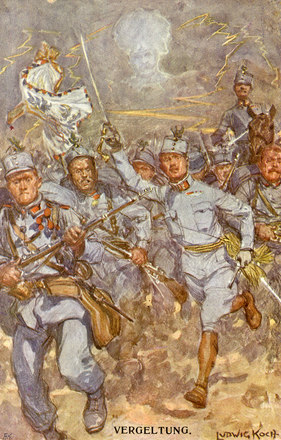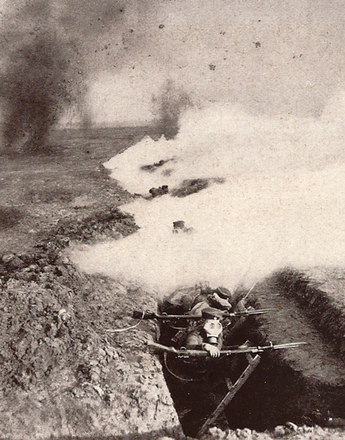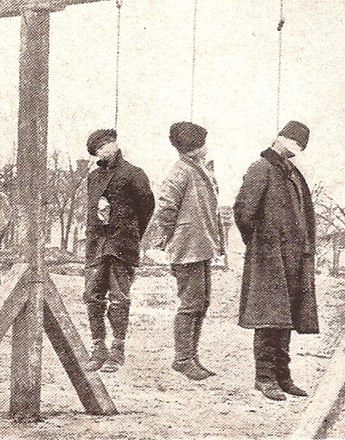
Ludwig Koch “Revenge!”, propaganda postcard
Copyright: Wien Museum
Partner: Wien Museum
Even though the Danube Monarchy mainly focused on the ‘penalty kick’ against Serbia, they failed to achieve their operational goals by the end of the year. Every offensive ended in fiasco.
Since they were simultaneously fighting against Russia, the Habsburg Army could not outnumber the armies in the Balkans. Quite the opposite: the Austro-Hungarian forces consisted of 290,000 men facing the 350,000 Serbs, who not only had combat experience from the two Balkan wars, but also the use of improved equipment provided to them by the French.
More deficiencies – in logistics and organisation, and a lack of supplies – immediately came to light when the Austro-Hungarian Army wanted to conquer the border rivers and launch an offensive attack. Furthermore, the army was not well prepared for combat in mountainous terrain and, moreover, in oppressive heat. Eventually, the defenders familiar with the local area could take the counter-offensive and even advance to Bosnia. By August 24, 1914 the Austrians had been pushed back to their starting position.
The Austro-Hungarian general Oskar Potiorek eventually tried to advance via the Dina in September, but did not penetrate beyond the bridgeheads. Finally, he ordered the soldiers to remain entrenched in their positions until the command to attack was issued that led to the capture of Belgrade on December 2.
However, even this operation turned out to be temporary. The supply situation of the Austro-Hungarian units deteriorated during heavy frost, whilst Serbian counter-attacks gained in effectiveness.
All in all, the Danube Monarchy's formations were in a miserable state following the previous operations. The 6th Army was almost wiped out. The 5th Army could only be saved at the cost of retreating from Belgrade. On December 15, 1914, Austro-Hungarian troops left Serbian territory once again. This spelt the demise of Potiorek's military career, too.
Jerzabék, Rudolf: Potiorek. General im Schatten von Sarajewo, Graz 1991
-
Chapters
- The Fading-Out of the Balkan Front
- The War before the War
- Sarajevo and the July Crisis
- Ethnic Conflicts and the Brutalisation of the Battles
- Disillusionment for the Army – The Failed ‘Punitive Expedition’
- ‘The Allies’ Successes’
- The Occupying Regime in Different Regions
- Romania's Entry into the War and Defeat by the Central Powers
- Greece on the Side of the Entente
- 1918 – Peace between Romania and the Central Powers
- Consequences of the War on the Balkans




